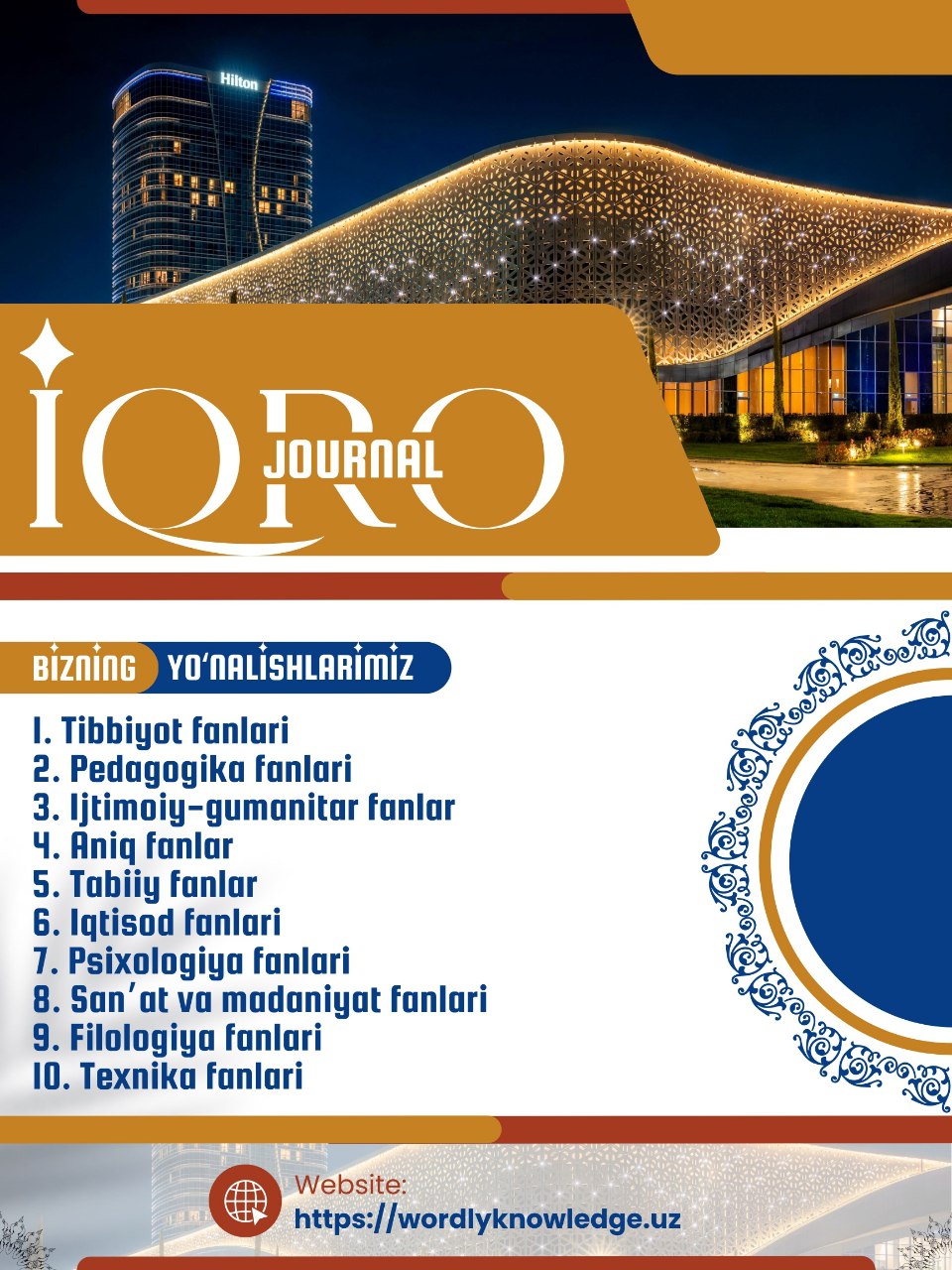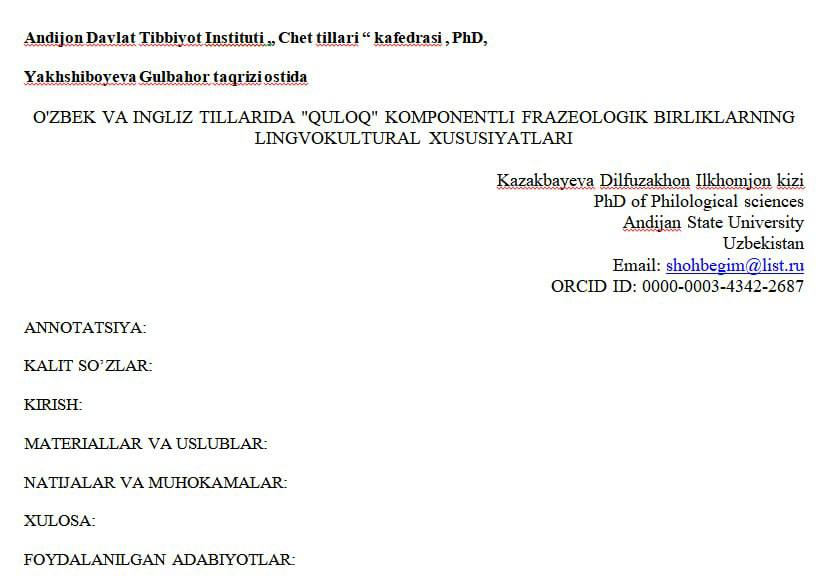EXPLORING THE EFFECTIVENESS OF TASK-BASED LANGUAGE TEACHING IN ENHANCING LANGUAGE PROFICIENCY IN EFL CONTEXTS
Keywords:
language proficiency, EFL contexts, communicative competence, task-based activities, real-world tasks, language acquisition, interactive learning, peer collaboration, fluency, language skills, speaking and listening, learner-centered approach.Abstract
Task-Based Language Teaching (TBLT) has gained considerable attention in language education due to its emphasis on real-world language use and learner-centered activities. This study explores the effectiveness of TBLT in enhancing language proficiency in English as a Foreign Language (EFL) contexts. By focusing on task-based learning activities, the research examines how this approach improves students’ speaking, listening, and overall communicative competence. The study was conducted in an EFL setting, involving a group of intermediate-level learners who participated in various task-based activities over a 12-week period. Data was collected through pre- and post-tests, classroom observations, and student interviews. The findings suggest that TBLT significantly enhances learners’ language proficiency, particularly in terms of fluency, interaction, and practical language use. Additionally, the results highlight the importance of task design, learner engagement, and teacher guidance in maximizing the benefits of TBLT. This paper concludes that when effectively implemented, TBLT provides a dynamic and practical framework for improving language proficiency in EFL classrooms, offering valuable insights for educators looking to adopt more communicative and task-oriented teaching methods.
References
1.Ellis, R. (2003). Task-based language learning and teaching. Oxford University Press.
2.Long, M. H. (1985). A role for instruction in second language acquisition: Task-based language teaching. In S. Gass & C. Madden (Eds.), Input in second language acquisition (pp. 27–43). Newbury House.
3.Nunan, D. (2004). Task-based language teaching. Cambridge University Press.
4.Williams, M., & Burden, R. L. (1997). Psychology for language teachers: A social constructivist approach. Cambridge University Press.
5.Prabhu, N. S. (1987). Second language pedagogy. Oxford University Press.
6.Samuda, V., & Bygate, M. (2008). Tasks in second language learning. Palgrave Macmillan.
7.Willis, J., & Willis, D. (2007). Doing task-based teaching. Oxford University Press.
8.Carless, D. (2009). Misunderstanding in task-based language teaching: The case of 'transferable' versus 'non-transferable' tasks. ELT Journal, 63(1), 27-35. https://doi.org/10.1093/elt/ccn032
9.Skehan, P. (1998). A cognitive approach to language learning. Oxford University Press.
10.Robinson, P. (2001). Task complexity, cognitive workload, and second language learning. Applied Linguistics, 22(1), 27-57. https://doi.org/10.1093/applin/22.1.27














